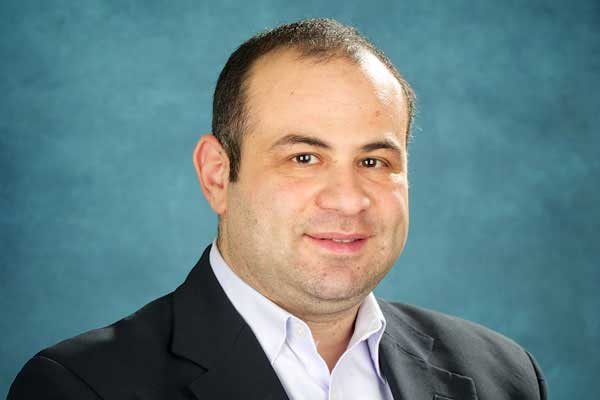
Toward the quantum Internet: Amr Helmy and the Connaught Global Challenge Award
Published: January 7, 2016
After terror attacks last year in Europe and Africa, speculation swirled that the plotters may have been using smartphone apps to encrypt their communications.
Now, Professor Amr Helmy of the University of Toronto's Faculty of Applied Science and Engineering is leading research that could break open such encryption while ensuring the security, privacy and confidentiality of legitimate communications.
Helmy's work is supported by a Connaught Global Challenge Award. The award, funded by U of T’s Connaught Fund, was established in 2011 to support interdisciplinary approaches to problems of global significance. Proposals come from the U of T research community, involve large teams from multiple disciplines and are subjected to the highest level of international peer review.
Read more about projects backed by the Connaught Global Challenge Award
As more people and businesses move crucial operations online, digital security has become a challenge of global significance. Modern encryption ciphers can only be broken with powerful computers, much faster than those commercially available today. Quantum computing and quantum cryptography harness the physical laws of quantum mechanics to provide both speed and security improvements many orders of magnitude better than today’s state-of-the-art.
“A technological platform that provides a significant leap forward is sorely needed,” says Helmy. “My personal vision is for a quantum Internet that can go farther beyond quantum-based security – that can afford distributed quantum information processing, where quantum computers are connected by quantum communications.”
Helmy is leading the effort to gather a critical mass of quantum Internet researchers and identify pressing research questions in this field. The group includes investigators from across U of T, including in The Edward S. Rogers Sr. Department of Electrical & Computer Engineering, physics, and chemistry, as well as industry partners from Nippon Telegraph and Telephone in Japan and Burnaby, B.C.-based quantum-computing company D-Wave Systems.
One of the group’s first objectives, says Helmy, will be to study how quantum states encoded in light, as photons, can robustly exchange information, with quantum states generated and manipulated in matter, as ions.
“Currently there’s no robust way to couple quantum states of the two systems – photons and ions – whereby one can share the generated quantum states between different network nodes,” says Helmy. “While there are promising approaches out there, they mostly lack the practical finesse, which propels them to fuel demonstrations out of the lab and into the field.”
The Connaught Fund, currently valued at more than $105 million, was founded in 1972 from the sale of the Connaught Medical Research Laboratories for $29 million. The labs had produced vaccines and, notably, insulin after it was discovered by U of T researchers Frederick Banting and Charles Best in 1921. The Connaught fund has since awarded more than $135 million to U of T scholars and is the largest internal university research funding program in Canada.


